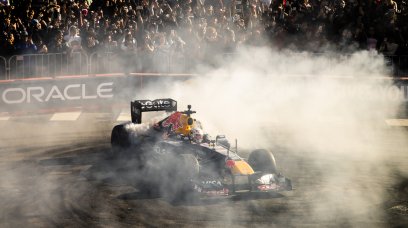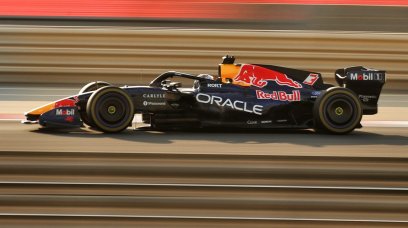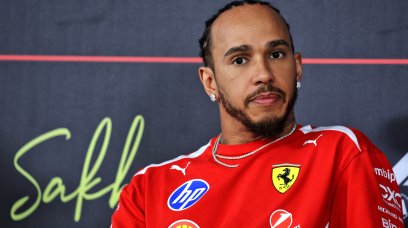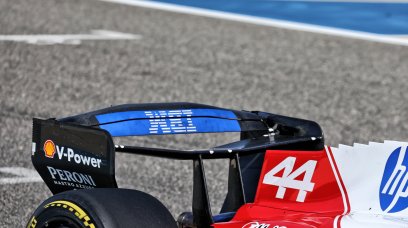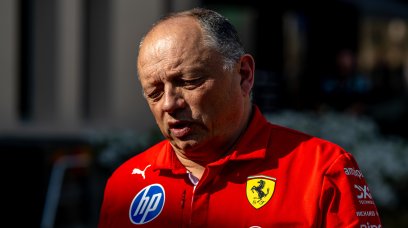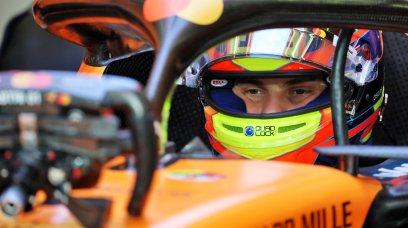With the Spanish Grand Prix confirmed to be moving to Madrid from 2026, F1 will add to its roster of street circuits contained in the bustling calendar. The total now stands at eight with Saudi Arabia, Australia, Miami, Monaco, Azerbaijan, Singapore and Las Vegas, whilst Canada's event takes place on a street-like layout in Montreal. But is this new trend of racing on city streets a positive, or is it taking away from F1's DNA?
The street revolution
Just 20 years ago, just two street circuits graced the then-18-race schedule, with Australia opening the season before Monaco's traditional May extravaganza. When the Marina Bay circuit was introduced in 2008, it had the honour of hosting F1's first night race - something that helped the event initially stand out. Whilst some races have lacked action, it has become a standout race on the calendar, not least for its endurance-style challenge in the Singaporean heat. The Jeddah Corniche Circuit too brings its own unique challenge, given the high average lap speeds. But it is not a traditional street layout given it doesn't wind through public roads like Monaco or Baku. Vegas was spectacular with the backdrop of hotels and casinos illuminating the Nevada night sky, Miami brought razzmatazz to its inaugural event - though may have been overshadowed by its American sister event - and Azerbaijan poses a difficult engineering challenge across three very distinct sectors. These events are commercially important for F1 - all in valuable locations with the chance to optimise financials from each event compared to purpose-built events that are traditionally some distance from the nearest city centres. Transport links are far better for fans, with some traditional venues limited to single-road access and limited bus travel. From this point of view, the increase in street venues makes complete sense.
Why street circuits pose a potential problem
But on the other hand, a switch to a more Formula E-style calendar would deprive F1 fans of seeing the cars at their very best. F1 is billed as the pinnacle of motorsport and, as such, a certain expectation is created with regards to performance. We know that cars can lap a circuit faster than any other, but we want to see that in action. Take Madrid and Barcelona, for example. The tighter and twistier layout may well provide an exciting race when the circuit debuts, but it will not provide the same challenge of excellence the Circuit de Barcelona-Catalunya offers. At the latter, there are slow, medium and high-speed corners, some short and some long and some consecutively to push the machinery to the edge of excellence on a grippy surface. In contrast, street layouts typically offer less grip for the tyres and lead to slower speeds from the cars, regardless of the track configuration. This was seen at Las Vegas last November, where drivers had to fight for tyre grip. All else aside, the traditional facilities on the calendar allow the cars to perform at peak level and show off the competitors as superheroes and this effect could be lost with a street-focused calendar. The other issue - particularly with Madrid - is the circuit is not in the heart of the city but rather out of the way somewhat near the IFEMA. It doesn't quite provide the glitz and glamour of some rival street races, even if the connections for fans remain simple and efficient. Street circuits can be good. But the decision as to where to race should ensure the show on-track is more important than the commercial aspect.
Team names go commercial
Talking of commercially driven decisions, two team names, in particular, stand out as clumsy this term. AlphaTauri has rebranded to Visa Cash App RB, whilst Sauber has become Stake F1 ahead of its transition to Audi - thought that was initially revealed to be Stake F1 Team Kick Sauber. It would be remiss not to point out that a number of teams on the grid have partners and sponsors as part of their official entry names - BWT Alpine, Oracle Red Bull Racing, Aston Martin Aramco - though none seem to be as egregious in their commercial goals as Visa Cash App RB. The new name continues a trend of what seems to be a commercialisation of the sport when looking at decisions made since Liberty Media took over F1, though nobody can be blamed for attempting to capitalise on the growing interest in the sport. It is, however, imperative that these interests do not harm the essence of what F1 is.
Calendar challenge
F1 embarks on a record-breaking 24-race calendar this season, with a triple-header to end the season in Las Vegas, Qatar and Abu Dhabi. A commercial success for F1... a great indictment to the work that has been done to boost the popularity of the sport around the world in order to have so much demand for races new, old and current. But the downside to having so many races is that there becomes a danger of diluting the product. How do you build up to a crescendo in Abu Dhabi when there are two events in the fortnight immediately before? How do you keep interest up for the fanbase in such a long season if, like last term, it becomes apparent there will be a runaway champion? The championship started with calendars of fewer than 10 races - of course far too short - but 20 years ago, the schedule ran to 18 races. With testing in mind before the campaign, a target number of 18-20 would be perfect for keeping excitement and anticipation up for those watching on - that's without all the other issues that come with such a gruelling schedule. F1 is by no means entering a danger zone - the business side is thriving - but the spirit of the sport must be preserved and recent developments feel like a threat.
Most read

